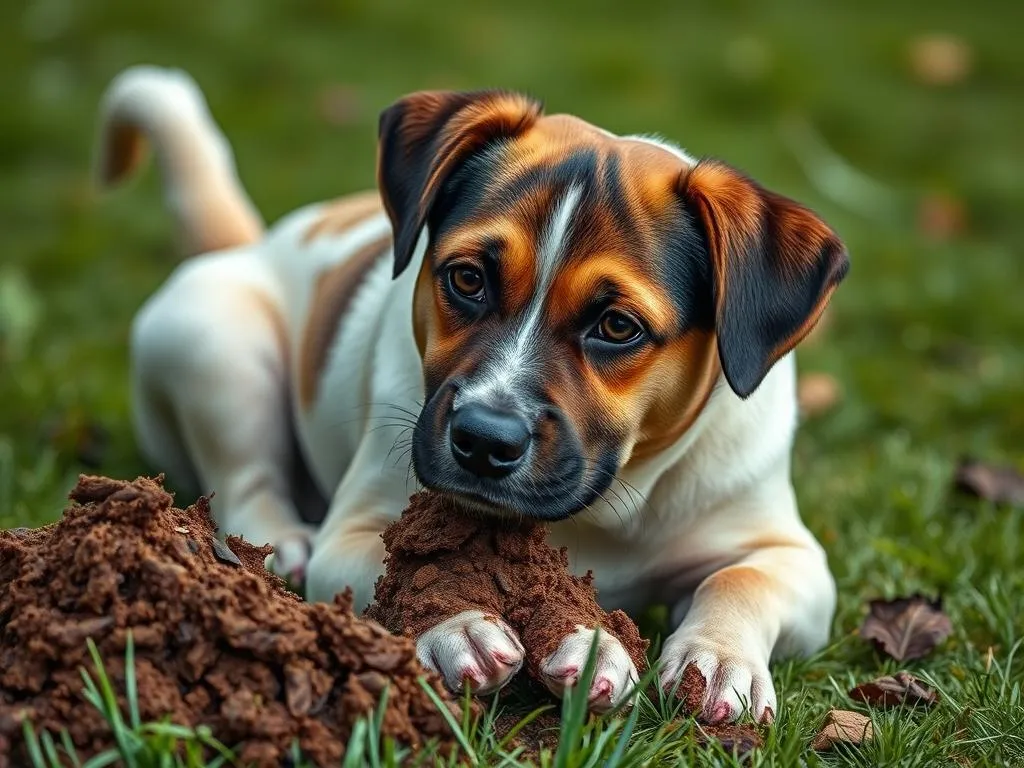
Introduction
For dog owners, the consistency of their pet’s stool is more than just a trivial concern; it plays a crucial role in their dog’s health and overall well-being. Firm dog poop is an indicator of good health, while loose stools can signal dietary problems or underlying health issues. Moreover, firm poop is easier to clean up and poses less of a risk for spreading harmful bacteria in the environment. By understanding the factors that influence dog poop consistency, pet owners can take actionable steps to ensure their furry friends maintain healthy bowel movements.
Understanding Dog Poop Consistency
Normal vs. Abnormal Dog Poop
Healthy dog poop typically has a firm, log-like shape, a medium brown color, and a mild odor. A well-formed stool should be easy to pick up with a bag. In contrast, abnormal poop can be a sign of health issues. Loose stools, diarrhea, or stools that contain mucus or undigested food can indicate dietary indiscretion, infections, or more severe health problems. Observing these characteristics can empower pet owners to make informed decisions about their dog’s diet and health.
Factors Influencing Dog Poop Consistency
Several factors can affect the consistency of dog poop, primarily diet, hydration, and overall health.
- Diet: The type of food consumed plays a significant role in stool quality. High-quality dog food rich in essential nutrients and balanced for your dog’s specific needs can lead to better stool consistency.
- Hydration: Adequate water intake is vital for digestion and overall health. Dehydration can lead to harder stools and even constipation.
- Health Conditions: Certain medical conditions or medications can also affect stool consistency. Regular check-ups with a veterinarian can help identify any underlying health issues that need addressing.
Dietary Changes to Firm Up Dog Poop
Choosing the Right Dog Food
Selecting high-quality dog food is one of the most effective ways to promote firm dog poop. High-quality foods are formulated with the right balance of proteins, fats, and carbohydrates, which support healthy digestion. Look for brands that list whole meats as the first ingredient and contain no fillers or artificial additives. Foods designed for specific life stages (puppy, adult, senior) are often more nutritionally balanced.
Incorporating Fiber into the Diet
Incorporating fiber into your dog’s diet can also help firm up stools. Fiber aids digestion and can improve stool consistency.
- Types of Fiber: There are two types of fiber—soluble and insoluble. Soluble fiber helps to absorb excess water in the intestines, while insoluble fiber adds bulk to the stool.
- Recommended Fiber Sources: Foods such as pumpkin, sweet potatoes, and carrots are excellent sources of fiber. Adding small amounts of these foods to your dog’s meals can help improve stool consistency.
- Gradual Introduction: When introducing new foods, it’s essential to do so gradually to avoid digestive upset. Start by mixing a small amount of the new food with their regular diet and gradually increase the amount over several days.
Avoiding Certain Foods
Some foods can lead to loose stools, so it’s crucial to limit or avoid them in your dog’s diet.
- Dairy: Many dogs are lactose intolerant, and dairy products can lead to gastrointestinal issues.
- Fatty Foods: Foods high in fat can upset a dog’s stomach and lead to diarrhea. It’s best to stick to lean meats and healthy fats.
Ensuring Proper Hydration
Importance of Water Intake
Hydration is vital for maintaining healthy digestion and promoting firm dog poop. Water helps to soften the stool and prevent constipation. A well-hydrated dog is less likely to experience stool consistency issues.
Tips for Encouraging Water Consumption
Encouraging your dog to drink more water can be achieved through several strategies:
- Fresh Water: Always provide fresh, clean water. Dogs are more likely to drink when the water is appealing.
- Flavored Water: Adding a bit of low-sodium broth to the water can entice some dogs to drink more.
- Monitor Water Bowls: Regularly check and clean your dog’s water bowl to ensure it remains appealing.
Health Considerations
When to Consult a Veterinarian
If your dog experiences persistent diarrhea, blood in the stool, or significant changes in behavior or appetite, it’s essential to consult a veterinarian. These can be signs of serious health issues that require medical attention. Regular health check-ups can help identify problems early on and ensure your dog remains healthy.
Common Health Issues Leading to Loose Stool
Several health issues can lead to loose stools, including:
- Gastrointestinal Disorders: Conditions such as inflammatory bowel disease (IBD) or pancreatitis can affect stool consistency.
- Parasites and Infections: Parasites like giardia or infections caused by bacteria can also lead to diarrhea. Regular deworming and vaccinations can help prevent these issues.
Lifestyle Adjustments
Regular Exercise
Physical activity is essential for good digestion. Regular exercise helps stimulate the digestive system, promoting healthy bowel movements and firm dog poop.
- Types of Exercise: The amount and type of exercise required can vary by breed. Generally, dogs benefit from daily walks, playtime, and socialization with other dogs.
Stress Management
Stress can significantly impact a dog’s gastrointestinal health. Stressful situations can lead to upset stomachs and loose stools.
- Routine: Establishing a consistent routine can help reduce anxiety in dogs. Regular feeding, walking, and playtime can provide stability.
- Socialization: Gradual exposure to new environments and other pets can help your dog become more comfortable and less anxious.
Home Remedies and Solutions
Natural Remedies for Firming Up Dog Poop
Several natural ingredients can help firm up dog poop.
- Plain Yogurt: Contains probiotics that can aid digestion. A small spoonful can be added to your dog’s food.
- Rice: Plain, cooked white rice can help bind stool. Mix it with your dog’s regular food for a few meals if they are experiencing mild diarrhea.
Over-the-Counter Solutions
There are also over-the-counter products designed to support digestive health.
- Probiotics: These can help restore healthy gut flora and improve digestion.
- Digestive Aids: Products containing natural ingredients like pumpkin can help firm up stools. Always read the label and consult your vet before using any new products.
Conclusion
Maintaining firm dog poop is essential for your pet’s health and your peace of mind. By understanding the factors that influence stool consistency, making appropriate dietary changes, ensuring proper hydration and exercise, and addressing health concerns, you can help your dog achieve optimal digestive health. Observing and responding to your dog’s needs is the best way to ensure their well-being. Remember, if issues persist, consulting a veterinarian is always the best course of action for your furry friend.









